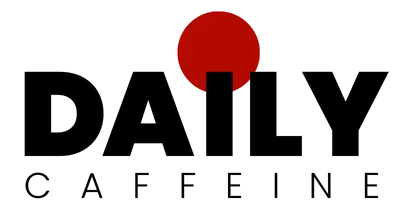The Information Technology and Business Process Management (IT-BPM) sector in the Philippines is at a crucial turning point. With increasing US protectionist policies and the rapid advancement of Artificial Intelligence (AI), the industry is evolving to maintain its global leadership and ensure sustainable growth.
The IT and Business Process Association of the Philippines (IBPAP) emphasized the urgent need to enhance the value-added content of its services. This shift will allow the industry to minimize the impact of economic and policy changes, particularly from the United States, which remains its largest market.
Industry Overview and Recent Performance
The Philippine IT-BPM industry remains a key driver of economic growth, generating a record $38 billion in revenue and employing 1.82 million professionals in 2024. This marks a 7% increase from the previous year, solidifying its position as one of the largest outsourcing hubs in the world.
However, the industry’s heavy dependence on the United States, which accounts for 70% of its client base, has made it vulnerable to shifting US trade policies and increasing calls for reshoring and nearshoring among American businesses.
IBPAP has raised concerns that a potential return of Donald J. Trump to the White House in 2025 could trigger a renewed push for “America First” policies, forcing US companies to bring back outsourced jobs or move them to nearshore locations like Mexico or Canada.
A look at past trends shows how damaging US protectionism can be for the Philippine BPO industry. During Trump’s first term, offshoring slowed significantly, and the Philippine IT-BPM industry’s growth rate dropped from 12.3% in 2016 to just 2.5% in 2017 and 3.9% in 2018.
This time, however, IBPAP is proactively implementing strategies to diversify its services, expand its global footprint, and strengthen the industry’s resilience to geopolitical changes.
The Impact of AI on the BPO Sector
While the rise of AI and automation has introduced efficiency improvements, it has also raised concerns about job displacement. AI-driven chatbots, virtual assistants, and advanced data processing tools are replacing many low-value, repetitive tasks, traditionally handled by call center agents and back-office workers.
Despite these challenges, industry leaders believe that AI will augment human roles rather than replace them. Instead of eliminating jobs, AI can help streamline processes, allowing Filipino BPO workers to focus on higher-value and knowledge-intensive tasks.
IBPAP President Jonathan R. Madrid reinforced this perspective, stating:
“What got us to $38 billion in revenue and 1.82 million jobs may not get us to where we want to be. We must adapt, innovate, and lead the next chapter of our industry’s success.”
To remain competitive, the industry is investing in AI upskilling, digital transformation, and automation-driven solutions to align with evolving business demands.
A Strategic Shift Towards High-Value Services
To address the combined challenges of US protectionism and AI automation, IBPAP has outlined a strategic roadmap that prioritizes high-value services beyond traditional call centers and customer support.
The key areas of focus include:
- Banking and Financial Services – Strengthening expertise in financial analysis, risk management, compliance, and fraud detection.
- Healthcare Information Management (HIM) – Expanding services in medical coding, billing, telemedicine support, and electronic health record (EHR) management.
- Digital Transformation and IT Services – Enhancing capabilities in AI development, cloud computing, cybersecurity, blockchain technology, and enterprise software solutions.
- Knowledge Process Outsourcing (KPO) – Providing specialized services such as data analytics, market research, legal process outsourcing, and high-level consulting.
This strategic shift aims to position the Philippines as a global leader in high-value BPO services, ensuring its relevance in an increasingly automated and digitally-driven economy.
Leadership Reinvention to Drive Industry Growth
To steer this transformation, IBPAP has elected a new Board of Trustees for 2025–2027, composed of key industry leaders and experts from various IT-BPM subsectors.
Newly Elected IBPAP Board of Trustees (2025–2027)
Industry Representatives
- Ayhee Campos – Infosys BPM Philippines and Malaysia
- Nicki Agcaoili – Carelon Global Solutions Philippines
- Tonichi Parekh – Concentrix Philippines
- Ambe Tierro – Accenture Philippines
- Sanjiv Gupta – IBM Philippines
Non-Industry Trustees
- Kaye Bondoc dela Cruz – PLDT Enterprise
- David Leechiu – Leechiu Property Consultants
- Sandeep Uppal – HSBC Philippines
Partner Industry Trustees
- Haidee Enriquez – Contact Center Association of the Philippines
- Marlyn Montano – Animation Council of the Philippines
- Alvin Juban – Game Development Association of the Philippines
- Paolo la’O – Global In-House Center Council Philippines
- Vincent Remo – Healthcare Information Management Association of the Philippines, Inc.
- Jonathan De Luzuriaga – Philippine Software Industry Association
This leadership team is expected to drive the industry’s digital transformation, advocate for favorable government policies, and forge new international partnerships to expand the sector’s global reach.
Opportunities Amid Challenges
While US protectionism and AI-driven disruptions present obstacles, they also offer opportunities for industry evolution and growth.
By focusing on high-value services and digital transformation, the Philippine IT-BPM industry can:
✅ Reduce dependence on traditional voice-based BPO operations
✅ Attract premium clients willing to pay for specialized expertise
✅ Expand into new markets outside the US (e.g., Europe, Australia, and the Middle East)
✅ Leverage AI as an enabler of productivity rather than a threat to jobs
✅ Develop a more sustainable and future-proof business model
This proactive approach will reinforce the Philippines’ status as a top outsourcing destination, not just for cost savings but for its skilled workforce, innovation, and cutting-edge business solutions.
As IBPAP and industry stakeholders navigate the shifting global economic landscape, their focus on upskilling the workforce, embracing AI, and strengthening public-private partnerships will be critical for sustaining long-term growth.
With the right strategies in place, the Philippine IT-BPM industry is poised to remain a dominant force in the global outsourcing market, despite geopolitical and technological shifts.


